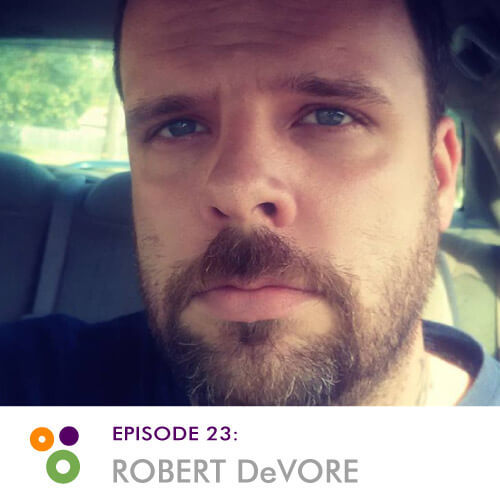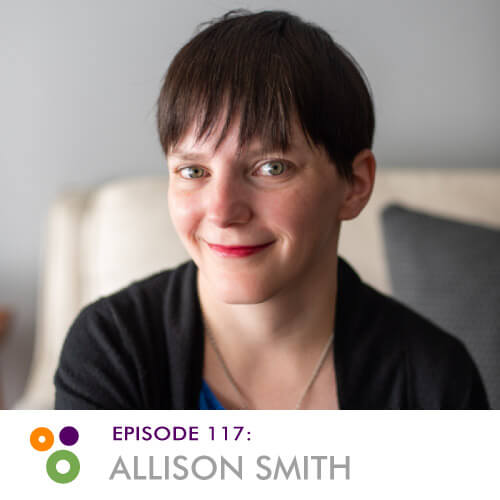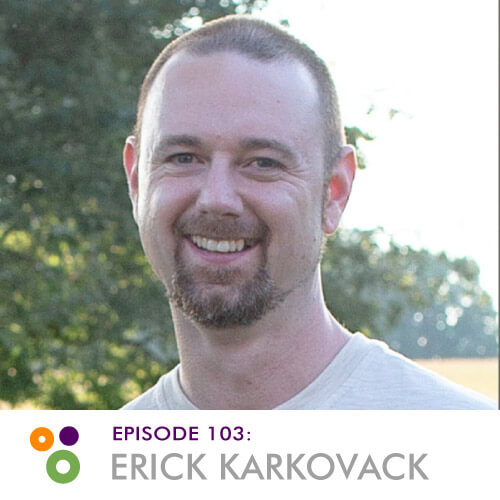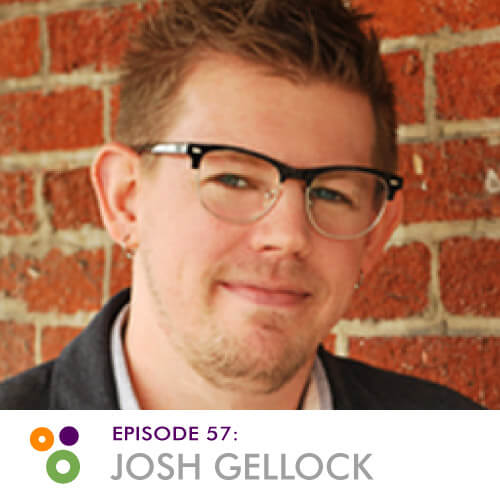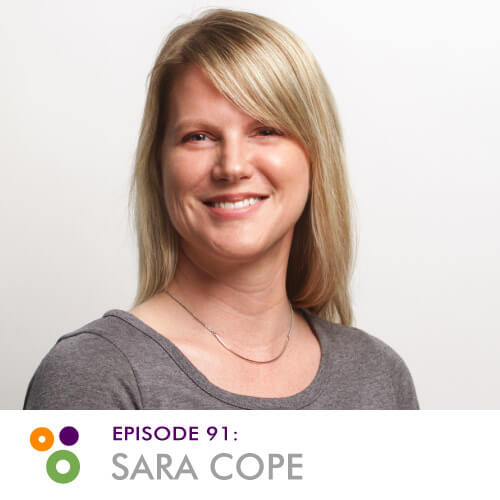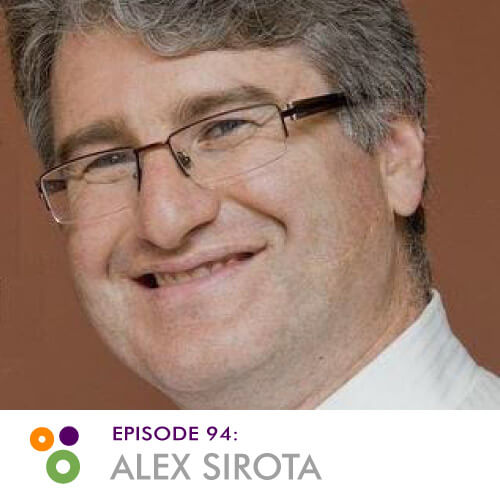Episode 27: Kendall Guillemette

Podcast: Play in new window | Download
Subscribe: RSS
Introducing Kendall Guillemette
Kendall is a WordPress technical lead at Kanopi Studios. He lives and works in Portland, Oregon.
Show Notes
WordPress business website | Kanopi Studios
Baseball Podcast | Stolen Signs
Environmental Podcast | Group Project
Twitter | @k3nd477
Episode Transcript
Liam: This is Hallway Chats, where we talk with some of the unique people in and around WordPress.
Tara: Together, we meet and chat with folks you may not know about in our community.
Liam: With our guests, we’ll explore stories of living – and of making a living with WordPress.
Tara: And now the conversation begins. This is episode 27.
Liam: Welcome to Hallway Chats. I’m Liam Dempsey.
Tara: And I’m Tara Claeys. Today, we’re joined by Kendall Guillemette. Kendall is a WordPress technical lead at Kanopi Studios. He lives and works in Portland, Oregon. Hi Kendall.
Kendall: Hello.
Liam: Hey Kendall, how are you? Thanks for joining us today.
Kendall: Thanks for having me.
Liam: Our pleasure. Can you tell us a little bit more about yourself, a little bit more than Tara shared?
Kendall: Yeah. I’ve been in the web development business for about 20 years, started kind of right out of college. Got a job at a regional marketing firm, basically doing pre-press work, and that involved in I taught myself web development and have grown in that realm. And I started working with WordPress specifically about 10 years ago, and kind of have taught myself that the whole way. I have an arts and design background. The technical side of things has been kind of no formal training but have definitely spent a lot of time and energy diving into that. Yeah, and then on the personal side of thing, like I said, I live in Portland, Oregon. Married, I have two little boys and love being outside, and I love baseball. Those are kind of my vices.
Liam: Baseball. I heard the World Series was fantastic. Would you agree with that assessment?
Kendall: Yeah, it was one of the best ones in a while. Although, last year probably would take the cake for me. I’m a Chicago Cubs fan so that was pretty special for me. But, yeah, this year was really exciting to watch.
Liam: Yeah, I’m from suburban Chicago and I like Wrigley Field because it’s a nice beer garden but I’ve got a lot of family who were just thrilled to see the Cubs win. Why are you a Cubs fan? That’s interesting. You’re pretty far away from the Cubs.
Kendall: Yeah, I grew up in Chicago, in the suburbs out west in Glen Ellyn. That’s where my Chicago fandom comes from, moved out west, lived in Seattle for a while but moved out west about 10+ years ago as well.
Liam: Cool, cool. Your story about how you got to where you are today, the print designer in me picked up on. You started doing pre-press work. Tell us just a little bit about that, we enjoy chatting with people who’ve transitioned from print to web turn, I both have done, so it’s always interesting to hear how others have walked the road.
Tara: It does look to be a little something about your age, though. That means you’re not 20. [laughs]
Kendall: Yeah. I studied art in college mainly painting and printmaking. There’s not a lot of job jobs up for that. And I knew someone who started the original design communications company. They started doing CD Rom development and multimedia slideshows, that shows my age a little bit more.
Liam: Yeah, that’s awesome.
Kendall: They hired me, I think, as a web guy or something at very non-discrepant terms at that point.
Liam: Right, those early days?
Kendall: Yeah. But they were doing work for a toy company so they shot all of the products, they photographed them and they all made it to be outlined, and the background’s knocked out, and things like that. That’s kind of where it started and from there, they needed help on basically maintaining websites more than building new ones. I’m trying to think of a name, it was this really arcane strange development platform. It’s totally gone, I’m glad it’s totally gone because it was horrible. But yeah, I started on that and then started working on HTML, CSS, hand-coding stuff from there. A lot of Flash development too. That’s actually where I learned more of my coding, scripting skills was doing Flash development.
Liam: Flash Actionscript and you could actually write that kind of stuff?
Kendall: Yeah.
Liam: That’s cool. I knew just enough how to be just absolutely dangerous. If it worked, woohoo, but if it didn’t, oh no. I was out of luck. You told us earlier that you got into WordPress about 10 years ago. Why don’t you tell us a little bit about that? What caught your fancy and what kept you there or how did that come about?
Kendall: Yeah. My sister worked at a non-profit and they needed a website. And I think I kind of heard about WordPress, I don’t even know how I initially heard about it but thought that that would be a good solution. So actually, the first WordPress site I coded, I didn’t use themes and basically, looking back I’m like, “How did that even work? I have no idea.”
Liam: [laughs] We all have that same story, right? “How did that happen? How did it work?” But go ahead.
Kendall: Yeah. I was like, “Oh, let’s give this a shot.” And did that and then didn’t really get involved with the community per se but I kind of was able to access more stuff online and figure out how to do things right or more right than I have been doing it. And I’ve tried to keep doing that.
Liam: That’s a great phrase, more right, as we look back on the things, both design and development, right? Which we did three years ago. Oh, jeez, alright, well, that was younger me. Although, every once in a while, it’s nice to look back at our old work and say, “I still kind of like that, I’m pleased with that.”
Kendall: Totally. I did a Javascript interactive map at this point probably eight years ago or something like that. I think it might still be in use and every time I think of that, I check it out and I’m like, “Yeah, that was cool.”
Tara: Yeah. [laughs] Now there’s probably a plugin for that that you could use in a third of the time.
Kendall: Yeah, it was all hand-coded. Pure Javascript. No jQuery or any sort of framework.
Liam: Going old school. Well, I suppose that was the only school at the time, right?
Kendall: That’s right.
Liam: You said you didn’t initially get into the WordPress community. You just went in alone and googled and blogged like a lot of people do. Would I be correct in understanding that you since have been more aware of the community, have become more active, or are you still flying solo as it were?
Kendall: Yeah, definitely have tried to, over the years, build a network of people to connect with whether it’s through meetups or, been to WordCamp in Seattle and Portland here. And I’m actually going to the WordCamp US, I go this week or whenever this comes out.
Liam: When it happens. We got you.
Kendall: Yeah, definitely trying to get more into that. Most of my work has been for clients and I haven’t really pushed towards releasing any of this stuff that I’ve made, as a plugin in a repository or anything like that. Although I know that that’s something that I want to be doing more of personally and I know at Kanopi, that’s something that we really strive to do is contribute back to the community. That’s definitely something that’s kind of on my personal growth list to get more into contributing code and also trying to work with younger developers, kind of mentorship kind of thing.
Liam: Let’s talk about your work at Kanopi. I think, if I remember correctly, Tara said you were the senior WordPress developer, senior WordPress lead. What is work like for you at nine to five or whatever hours you keep? What are you doing work-wise? What are you building, what are you developing? Are you themeing, are you more plugin, are you on back-end, a little bit of everything? What keeps you busy?
Kendall: Yeah. What we typically do, we support a lot of sites. We basically maintain our client sites after their site has been developed, whether it’s by us or by somebody else. That’s kind of maintaining security but it’s also adding features, extending what they have. And then for clients who want to build a new site, that’s a lot of– a lot of the work that I do is architecting, planning, trying to scope and budget, and then manage the process of delivering on that and working with other developers in the company to try and execute things and build them to the specification and scope that we’ve determined.
Liam: It sounds like you’re in a more senior role where you’re guiding and steering ships rather than writing code and pushing out.
Kendall: Definitely steering code. That’s one thing that I like at Kanopi is that I get to wear both hats in that way. It’s not kind of sitting up in an ivory tower, it’s definitely getting my hands dirty and working with the code, and working with the business requirements and things like that. That’s definitely something I enjoy. Prior to Kanopi, I was freelance for about 10 years and I definitely wore all the hats in that role.
Liam: Your hat count was pretty big, wasn’t it?
Kendall: Yeah, but it’s been nice to have a great team of other people to work with at Kanopi and I focus on the things that I excel at.
Tara: What prompted you to make the switch from freelancing to working for an agency and are you distributed or do you go into an office?
Kendall: Yeah, we’re all distributed. That company is all distributed kind of throughout North America. Canada, United States, and what prompted the move, it’s kind of an interesting story. I had no intention to take a full-time job at an agency. Like I said, I’ve been doing it for 10 years, I was very much in the flow of working for myself. A really good friend of mine, he works in the Drupal world, Kanopi also works in Drupal as well, he said, “Oh, I’ve got this friend and she’s looking for a WordPress guy.” And I was like, “Well, can’t hurt to talk.” And so we had a conversation and it was a cool culture, it was nice and it was distributed so I could keep my day to day really similar. Like I said, I’ve got two kids at home. I’d like to be around with them, my family, so that was important to me. Yeah, one thing led to another, we tried it out on a trial basis and everything clicked and it was going smoothly so I’m happy to be at Kanopi and it’s a good fit, I think.
Liam: That’s awesome. How long have you been there now?
Kendall: Full time since April but I started working with them around December of last year, so about a year.
Liam: About a year? That’s awesome. Let me switch around to one of our bigger questions here and I’m going to ask you to define success, whether it’s personal or professional or both, how would you define it?
Kendall: I would say success is not making the same mistake twice. That’s personal and professional. I guess that answer pre-supposes a couple of things. One, that you’re trying new things. So when you’re trying new things, you often fail, and I think that that’s where we learn. Learning by making mistakes.
Liam: That’s a wonderfully simple answer. I very much appreciate your view on trying new things, push yourself, make mistakes, don’t make them again. How far down the experience of life do you carry that? I can tell you a list of mistakes that I make every single day and they’re not necessarily horrendous terrible things but they’re things that I am actively working on. How do you measure that success, how do you try to not beat yourself up as it were on those little things that aren’t life and death but overall, you’d be better for, as you said earlier, not making that mistake again?
Kendall: Yeah. I think that I try to have a bit of a mindfulness practice. I think even spending a little bit of the time considering those things makes a huge difference. I guess, to get to your question, how far down do you take that? Pretty far down. For me, personally, I’m pretty thoughtful about every part of my life, probably sometimes to my own detriment. But I’m also pretty happy with my life and so I feel like, for me, that’s because of that practice of thinking about my life and decisions, and mistakes, and successes, and celebrating those.
Liam: I’m going to follow you down that path of mindfulness, and if you can, share with us one of your more productive, I’ll call it a technique, maybe it’s not, ways to maintain that mindfulness, let’s say, when you’re in the thick of life, whether it’s your two wonderful boys perhaps aren’t being as wonderful as you’d like, or that deadline is looming closer than you’d like and your colleagues at Kanopi are wanting that bit of code up and going, how do you maintain that?
Kendall: I think that’s a really great question and I think that’s the hard part about it for me. But big part of it is just trying to stay slow like within myself. Whether that’s even just simply sitting at my desk taking a deep breath, stopping what I’m doing, standing up, and even if it’s just stretching, something that’s, I guess, reminding myself that I’m a human being. I think it’s a big part of it, I think there’s a big culture, especially in technology that we’re robots or that we can just sit down and code for 18 hours straight, and it’s like, “I’ve done that.” You know? That’s not healthy for me. I don’t think it’s healthy for anyone but it’s certainly not healthy for me. And to just try and remember that working crazy, crazy, crazy unrealistic hours for extended periods of time is not something that’s sustainable, and that’s kind of a broad answer to your question. A more tactical technique type of thing, I think, would be breathing. I think breath has a lot to do with it. Taking time to sit with yourself and breathe.
Tara: Yeah. That’s part of meditation. I love what you said, I wrote it down. You said, “Reminding myself that I’m a human being.” I think that’s a really interesting way to look at your day and how you approach things. The fact that you say you approach everything so thoughtfully but bringing it back to the idea that success is never making the same mistake twice assumes that you’re going to make a lot of mistakes, no matter how thoughtful you are. Does it bother you when you make mistakes or do you just say, “Oh, there’s one time and I won’t do that again”?
Kendall: Yeah, I think sometimes it certainly does bother me, and it’s kind of what Liam was saying about having some things that are consistent struggles or what have you. Those things bother me in general, but specifically, I try to have an outlook that is more positive, I guess.
Tara: If you are reminding yourself that you are human, isn’t that what you say is that I’m only human so I’m not perfect. I think it’s good to remind yourself of that on both of the levels that you’ve talked about. It’s a hard thing to keep top of mind and to not beat yourself up when you make mistakes, but when you’re thinking about yourself as human. But that makes a lot of sense to me when you say that.
Kendall: I think that both personally and professionally too, in my life, I’ve spent some time running away from mistakes and that’s a sure fire way that you’ll never get away from them or never overcome them. That’s been a part of it too is sitting with the mistake and being like, “Yeah, that was a mistake.” Taking responsibility like crashing servers or what have you, any of those things on a professional level, those are harder to escape because there’s things that are broken or things that don’t work or whatever. But even that instead of being like, “Oh, it was so and so. The client did this.” There’s a lot of different ways that we can try and shift that, and try and assess the situation and take responsibility for it and I think that only helps build good teams too, if everybody’s willing to take the responsibility for the things that they were responsible for, actually.
Liam: Yeah, I really agree with that, both in negative or difficult situations but also in positive ways where the team can say particularly to clients, “Hey, our team did this. Mary did that and Tom did that and Angie handled that. Yes, I’m the primary client contact so it was us, it was me but really they’re the ones who carried all the weight.” I think that kind of sharing of positive and negative responsibility is fantastic. Let me ask you this, within work then, what is your favorite thing to do? You said you liked to code, you liked to jump around a lot about that but is that troubleshooting, is that writing new functionality, is that saying, “I want to find the right plugin and then I want to tweak it in this way”? Where do you really get your groove on at work?
Kendall: I think the thing that I like the most is trying to take business requirements and turn them into something that actually meets those business requirements. And that can look a lot of different ways but mainly what I mean by that is more of architecture, figuring out how we can accomplish that goal. That’s typically done in a planning phase. And then I do enjoy implementing that and seeing it actually work but I think that the biggest thing for me is kind of the creative side and I think that that ties into my creative background, but the creative side of, “How do we solve this problem?”
Liam: Yeah, that’s cool, that’s fun where you’re taking what is effectively an email or a bullet point list or a note from a conversation, and how can we breathe life into that in a way that is engaging visually, that is well-coded and well-built so that we can look back at it and, at least by the time we launch it, still like it. And then, hopefully, like with your Javascript map, look back at it eight years later and still say, “Yeah, I like that. I’m still pleased with how that turned out.” Let me ask you this, we’ve talked about your definition of success and the way that you worked towards that by being mindful and being aware of your breathing, and really trying to think about what you’re doing as you’re doing it so that you can do it in a way that you want to do it. What has been your biggest challenge to date and how have you either overcome it or dealt with it? And you can go personal, you can go professional, you can share as candidly or as reservedly as you’d like.
Kendall: Yeah, I think for me, this kind of goes back to reminding myself that I’m human, work is really important but it’s definitely not the most important thing in my life. I would say that building and establishing my relationship with my wife has been the biggest challenge for a lot of different reasons. One is that there’s such a strong mirror to myself, it’s kind of undeniable and I think some people probably choose to deny it or dodge it or whatever, but that’s not the road that I’ve been down. I think that that’s when the biggest challenge is to kind of come together with another human being and try and build a life together. It’s challenging and it also has paid off in a huge way.
Tara: I think one of the challenges I find is I take my spouse for granted a lot because we’ve been together a long time and he’s kind of there and puts up with me working a lot. But I realized that I don’t take any of my clients for granted, I don’t take my work for granted, I value that and nurture that way more than I nurture my personal relationships in a lot of ways. So I think that is a huge challenge, I definitely agree with you there.
Liam: And it’s ongoing, right? If we’re in a longer-term relationship, we’re constantly evolving for better or for worse. We’re either making more mistakes or not as individuals. And then we’re also trying to do it as a couple which is great when it works but it’s a lot of work. And that’s not to say it’s not enjoyable in its own way. We’re going deep in this episode, aren’t we?
Kendall: Yeah.
Tara: [laughs] It’s the holidays, you know, all those warm cozy feelings floating through the air, all the guilt you feel for not spending those quality moments by the fireside. [laughter] Yeah.
Liam: Funny. Okay, getting us back on track. Kendall, what’s the single most valuable piece of advice, be it personal or professional, that you’ve received and implemented in your life?
Kendall: Never stop learning. I think that has always been something that I remember growing up hearing about being a lifelong learner. I wasn’t super awesome at school but I always loved learning and I think that’s a distinction that doesn’t make sense to some people and really makes sense to some people. But for me, continuing to learn, I think I view learning as not something that’s other, it’s something that’s kind of integral to myself and so I’m always curious to figure out how things work, be it relationally or technically, or whatever. I think that that for me is always be learning, stay curious, and try new stuff.
Liam: And that ties back with your success, right? Don’t make the same mistake twice. If you’re not learning, you’re going to make the same mistake twice.
Tara: Yeah, and there’s always something to learn, especially in this environment that we find ourselves in. Things are always changing and there’s an endless stream of things to learn.
Kendall: Sure. I mean, there’s always things to pick up and there’s always one thing that working at Kanopi– like I said, I was freelance for 10 years, pretty much solo the whole time. And now coming into a more group environment, learning from other people in that way, these are the people who have life experiences and who have professional experiences that are different than mine and deeper in some areas than mine. Always being willing to learn new things about that and how we do things differently or better, or at least learn a different way to do it and then kind of assess and see if that is something that would be good to implement or learn.
Liam: At the risk of running our episode long here today, I’m going to ask you a question about learning and your least favorite thing to do within your new job at Kanopi. How are you learning to adjust to that and or like it or cope with it or manage in? Whatever your least favorite thing to do now that you’re in a work environment that isn’t just you.
Kendall: Yeah. The first thing that is my least favorite is keeping track of time.
Tara: Oh, me too.
Kendall: And I understand that it’s obviously so vital to a business and to make sense of what we’re all doing, especially as it’s more than just me or a small handful. We’ve got a bunch of people so I kind of understand what they are all up to, tracking time is the biggest thing to me that really has been difficult. How am I learning to do that? I don’t know.
Tara: Oh, come on, I really wanted you to enlighten me here. [laughter]
Kendall: I’ve tried a few things actually since I started. One is setting aside some time to layout my day so I can be even making a calendar that’s like, “Okay, from here to here, I’m going to overcome this.” And that works a little bit, I’ve tried that. That’s kind of like timeboxing. And then there’s always getting pulled into a meeting or the client has an urgent thing, whatever. That kind of falls apart sometimes. For me, that’s definitely the biggest struggle and I don’t know, maybe I can come on again and talk about it, if I ever learn how to do that. [laughs]
Tara: That would be great. I think I tried every tool that’s out there and you know what I have to do after we’re done with the show? I have to go back and look at the, there’s like a live tracker that I use, I have to go back and look at that to try to record my time after the facts because I was too lazy to push the button. How hard is that, right?
Kendall: For me, I try and look to get commits, I try to look at Slack, calendar events, it’s kind of like this amalgamation of different artifacts of my day.
Liam: With that, I’ll have to say that we are out of time, we’ve lost the track of it ourselves.
Tara: Good segway.
Liam: Thanks, Tara, thanks. Appreciate that. Before we let you go, Kendall, please share with us where people can find you online, please.
Kendall: Yeah, work is kanopistudios.com. Personally, I’m on Twitter, my Twitter account is @k3nd477 and I talk a lot about baseball on that. That’s definitely my personal account and yeah, that’s pretty much it. I don’t know if you want to, I do a baseball podcast called Stolen Signs. Twitter is @stolen_signs and I do another podcast about environmental sustainability and integrating that into your life and that’s called Group Project.
Liam: Awesome, that is very cool. Well, we’ll have to have you on again to learn about how you’re doing on timekeeping and to hear about some of these other podcasts. Kendall, thanks so much for joining us today.
Tara: Thanks, Kendall, great talking to you.
Kendall: Awesome. You too.
Tara: If you like what we’re doing here – meeting new people in our WordPress community – we invite you to tell others about it. We’re on iTunes and at hallwaychats-staging.ulpgsyz6-liquidwebsites.com.
Liam: Better yet, ask your WordPress friends and colleagues to join us on the show. Encourage them to complete the “Be on the show” form on our site, to tell us about themselves.
